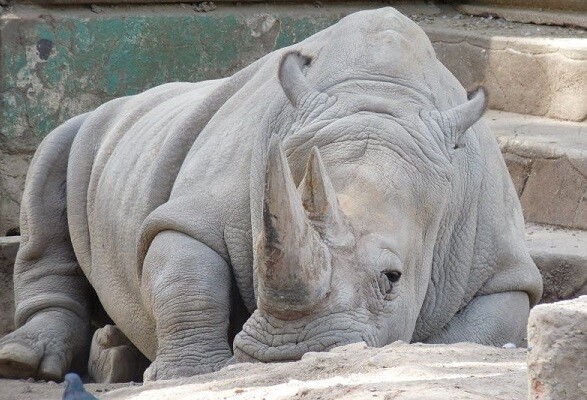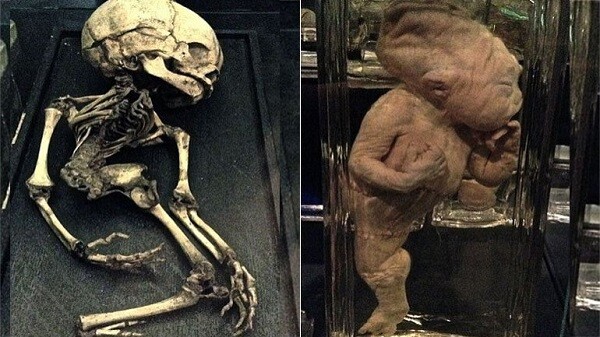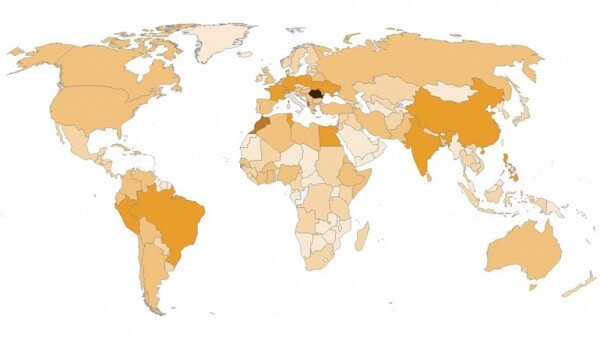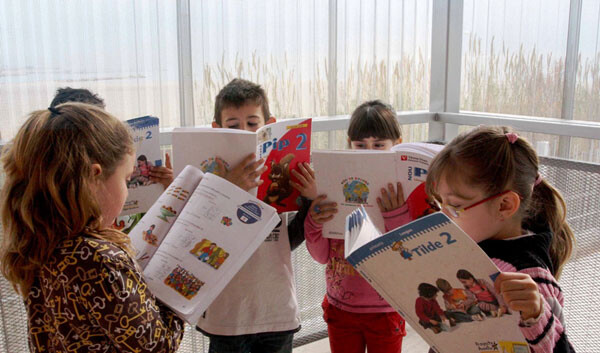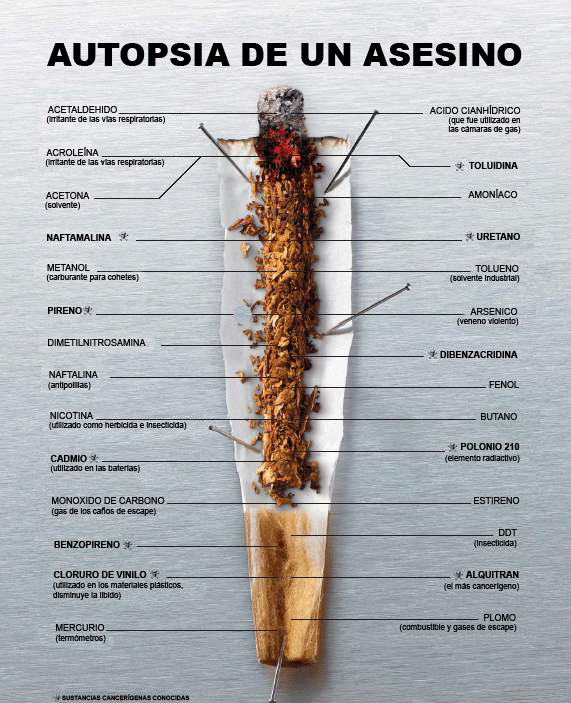
I appear today before Parliament to take the oath provided for in our Constitution and to be proclaimed King of Spain. Having fulfilled this constitutional duty, I wish to convey the Crown’s appreciation and respect for the Senate and the Congress of Deputies, in which national sovereignty is deposited, and here, on this day, to address the Honourable Members and all the people of Spain.
I begin my reign with profound emotion at the honour of accepting the Crown, aware of the responsibility it entails and with the greatest hope for the future of Spain.
It is a nation forged over centuries of history by the shared endeavours of millions of people from all corners of our country and without whose participation the course of Humanity cannot be properly understood.
A great nation, Honourable Members, in which I believe and which I love and admire; a nation whose destiny has been bound to my own for all of my life, as Crown Prince and, from today, as King of Spain.
Before the Honourable Members and before all the people of Spain – and in this respect, too, with profound emotion – I wish to pay a tribute of gratitude to and respect for my father, King Juan Carlos I. From today, an exceptional reign becomes part of our history, one that has left an extraordinary political legacy. Almost 40 years ago, from this same rostrum, my father stated that he intended to be King for all the Spanish people. And this he has been. He invoked the values defended by my grandfather, the Count of Barcelona, and called for a great project of national consensus, one that gave rise to the best years of our modern history.
Today we render to the person of King Juan Carlos the appreciation he deserves, from a generation of citizens who paved the way for democracy, for understanding among Spaniards and for their coexistence in a climate of freedom. That generation, under his leadership and with the very prominent contribution of the Spanish people, laid the foundations of a political construct that overcame apparently insurmountable differences, achieved reconciliation among Spaniards, acknowledged the plural nature of Spain and restored our nation to its place in the world.
Honourable Members, let me also thank my mother, Queen Sofía, for her impeccable, lifetime’s work on behalf of the Spanish people. Her dedication and loyalty to King Juan Carlos, her dignity and her sense of responsibility are exemplary and merit the heartfelt tribute of gratitude that, as her son and as King, I extend to her today. Together, for over 50 years, King Juan Carlos and Queen Sofía have devoted themselves to Spain. I trust that for many more years we shall continue to enjoy their support, their experience and their affection.
Throughout my life – as Prince of Asturias, Prince of Girona and Prince of Viana – my loyalty to the Constitution has been unswerving and irrevocable, as has, and will continue to be, my commitment to the values on which our democratic society rests. From my earliest childhood, I was brought up in these beliefs, by my family and my teachers. For this, I am deeply indebted to them all and I am thankful, now and always. The Queen and I shall educate our daughters, the Princess of Asturias and Infanta Sofía, in those same values of freedom, responsibility, solidarity and tolerance.
Honourable Deputies and Senators,
Today I can affirm before this Chamber – and I welcome the opportunity – that the reign of a constitutional King has begun.
A King taking possession of the highest office of the State, in accordance with a Constitution that was ratified by the Spanish people and which has been our supreme law for over 35 years.
A King who must adhere to the exercise of the functions entrusted to him by the Constitution and who, therefore, symbolises the unity and permanence of the State, undertaking its highest representation and arbitrating and assuring the normal functioning of the institutions.
In short, a King who must also respect the principle of separation of powers and, therefore, abide by the laws passed by Parliament and collaborate with the Government of Spain – which is responsible for determining the direction of national policies – and respect at all times the independence of the judiciary.
Have no doubt, Honourable Members, I shall honour the oath I have just taken; in discharging my responsibilities, I shall be a Head of State who is loyal and willing to listen; ready to understand, to warn and to advise; and always vigilant to defend the general interest.
Let me add, that in performing this act of such historical significance, but which is also of constitutional normality, it is my personal conviction that the Parliamentary Monarchy can and should continue to render a vital service to Spain.
The independence of the Crown, its political neutrality and its wish to embrace and reconcile the different ideological standpoints enable it to contribute to the stability of our political system, facilitating a balance with the other constitutional and territorial bodies, promoting the orderly functioning of the State and providing a channel for cohesion among Spaniards. These political values are essential for our coexistence, and for the organisation and development of our life in common.
But the demands made of the Crown are not limited to the necessary compliance with its constitutional functions. I have always been aware that the Parliamentary Monarchy must be open to and engaged with the society it serves; it must be a faithful and loyal interpreter of citizens’ aspirations and hopes, and must share – and feel as its own – their successes and their failures.
The Crown must remain close to the citizens, acquiring and maintaining their appreciation, their respect and their trust; to do so, the Crown must safeguard the dignity of the institution, maintain its prestige and conduct itself straightforwardly, honestly and transparently, in accordance with its institutional role and its social responsibility. Because only thus will it possess the necessary moral authority for the exercise of its functions. Today, more than ever, and quite rightly, citizens are calling for moral and ethical principles to inspire our public life and for behaviour to be exemplary in this respect. And the King, as Head of State, must not only lead but also be at the service of this just and legitimate demand made by the citizens.
Honourable Members, these are my convictions about the Crown, which from today I shall embody: a renewed Monarchy for new times. And I undertake my task with energy, with enthusiasm and with the open and innovative spirit that has inspired the men and women of my generation.
Honourable Deputies and Senators,
Today, if we were to look to the past, I hope it would be not with nostalgia, but with great respect for our history; with the will to overcome whatever may have separated or divided us; and thus remember and appreciate everything that unites and gives us strength and solidity for the future.
In this remembrance, too, we should always hold dear and recall, with immense respect, all those who as victims of terrorist violence lost their lives or suffered in the defence of our freedom. They will remain in our memories and in our hearts. And the victory of the rule of law, together with our warmest affection, will be the best acknowledgement of the dignity they deserve.
Turning to address our present situation, Honourable Members, let me also express my sympathy and solidarity with all those who have suffered the harsh impact of the economic crisis, and whose very dignity as persons has been affronted. It is our moral duty to do all in our power to reverse this situation, and our public duty to offer protection to the most vulnerable individuals and families. Moreover, it is our obligation to transmit a message of hope, especially to the young, that solving their problems and, in particular, enabling them to find jobs is a matter of priority for society and the State. I know all of the Honourable Members share these concerns and these goals.
But, above all, Honourable Members, today I should like us to look forward, to the future; toward the renewed Spain that, in unison, we must continue to build, from the beginning of this new reign.
Over the recent years, and not without difficulties, we have lived together in a democracy, having finally overcome past eras of tragedy, silence and darkness. Preserving the principles and ideals on which this coexistence is based, and to which I referred earlier, is not only an act of justice to the generations that have preceded us, but a source of inspiration and example at all times in our public life. And assuring the continued coexistence, in peace and freedom, of the Spanish people is and always will be an inescapable responsibility of all public authorities.
The men and women of my generation are heirs to that great collective success which has been admired worldwide and of which we are so proud. It is now up to us to pass it on to the coming generations.
But we also owe the duty to them, and to ourselves, to enhance that valuable legacy and to enrich the collective heritage of freedoms and rights that took such hard work to acquire. Because every political time has its own challenges; and because all political projects – like all human projects – inevitably remain unfinished.
Honourable Members, the Spanish people, and especially the men and women of my generation, wish to revitalise our institutions. In our actions, we seek to reaffirm the supremacy of the public interest and to strengthen our democratic culture.
We wish to see a Spain in which the political forces can come to agreement on the issues and at the times when this is called for by the public interest.
Our aim is that citizens and their concerns should be at the focus of political action because, with their efforts, their work and their sacrifice, it is they who drive our State forward and give meaning to the institutions of which it is comprised.
We hope for a Spain in which citizens regain and retain confidence in their institutions, and for a society based on civic values, tolerance, honesty and rigour, one that is open minded and constructive and acts in a spirit of solidarity.
And we hope, finally, for a Spain in which the ties of understanding are never broken, for this is one of the guiding principles of our constitutional spirit.
In this setting of hope, I wish to reaffirm, as King, my faith in the unity of Spain, symbolised by the Crown. Unity does not mean uniformity, Honourable Members. In 1978, the Constitution recognised our diversity as a defining characteristic of our very identity, in proclaiming the intention to protect all the people of Spain, their cultures and traditions, their languages and institutions. This diversity stems from our history, exalting us and giving strength.
Historically, Spain has been home to diverse traditions and cultures, which have enriched all its peoples throughout the ages. And that assembly, the relationship among cultures and traditions, is most clearly expressed in the concert of languages. Together with Castilian, the official language of the State, the other languages of Spain form a common heritage that, under our Constitution, must be given special respect and protection; this is so because languages are the natural channels for accessing the knowledge of peoples, and at the same time they represent bridges for dialogue among all Spaniards, a view held and defended by landmark writers including Antonio Machado, Espriu, Aresti and Castelao.
In such a Spain, united and diverse, based on the equality of all Spaniards, on solidarity among its peoples and on respect for the law, there is room for us all; for all our feelings and views, for all the different ways of being Spanish. Because feelings, and all the more so in these times of European integration, should never confront, divide or exclude, but should promote understanding and respect, coexistence and sharing.
And we must revitalise this coexistence every day, through the individual and collective exercise of mutual respect and appreciation of each other’s achievements. We must do so with sincere affection, with friendship and bonds of brotherhood and fraternity, which are essential to nourish our collective dreams and ambitions.
Honourable Members, let us all work together, each with their own personality, enriching the whole; let us do so with loyalty, to achieve the new goals before us all in the twenty-first century. Because a nation is not only its history, it is an all-encompassing project, one that is felt and shared by all, one that looks to the future.
A new century, Honourable Members, one that arrived under the sign of change and transformation and in which we live a reality that is quite distinct from that of the twentieth century.
As we are all aware, profound changes are taking place in our lives, bearing us away from traditional ways of seeing the world and our place within it. And while this may provoke disquiet, uncertainty or fear, it also opens up new opportunities for progress.
If we are to rise to the occasion and meet the new challenges to our coexistence, we must all play a part: the public authorities must give the lead and define our great national objectives; but society, too, must provide enthusiasm, convictions and active participation. This task calls for a profound change in the mentalities and attitudes of many people and, of course, great determination and courage, vision and responsibility.
History has shown us that all the great advances have taken place in Spain when we have evolved and adapted to the reality of our times; when we have rejected acquiescence or resignation and when we have raised our sights, to look beyond – and above – ourselves; when we have reached a fresh, shared understanding of our common interests and goals.
Honourable Members, the wellbeing of the men and women of our society requires us to position Spain in the twenty-first century, in the rapidly-emerging new world; in the century of knowledge, culture and education.
We now face the great challenge of promoting new technologies, science and research, which are the real energisers of wealth today; the challenge is to promote and encourage innovation, creativity and entrepreneurship, as essential attitudes for development and growth. In my view, these are all vital to the progress and modernisation of Spain, and I have no doubt they will help us win the battle to create new employment, which is the major concern among Spanish people today.
The twenty-first century, which is also the century of the environment, must be one in which humanistic and ethical values – which we must recover and maintain – are exercised, to help eliminate discrimination, secure the role of women and further promote peace and international cooperation.
Honourable Members, at this point I wish to consider the question of international relations, in which Spain occupies a privileged position due to its place in the geography and the history of the world.
Europe used to be an ideal to which Spain aspired. Today, Spain is part of Europe and it is our obligation to help build a strong, united, selfless Europe, in which social cohesion is preserved, which confidently asserts its position in the world and which consolidates its leadership in the democratic values we all share. Doing so is in our own interest, because it will strengthen us, too. Europe is not a foreign policy issue, it is one of the major projects for the Kingdom of Spain itself, for the State and for society.
We are united with the countries of Ibero-America by history and by close ties of affection and brotherhood. In recent decades, we have also shared increasingly strong economic interests and converging views on global questions. But above all, we are united by our shared language and culture, which form an asset of immense value that we must cultivate with resolve and generosity.
And finally, our ancient ties of culture and shared viewpoints with the Mediterranean region, the Middle East and Arab countries offer us the capability to engage in privileged dialogue, based on respect and willingness to cooperate in areas of mutual and international interest, in a region that is of such strategic, political and economic importance.
In an ever-more globalised world, in which new stakeholders are emerging, together with new risks and challenges, the only attitude possible is to adopt an increasingly resolute stance, actively defending the rights of our citizens and promoting our interests, seeking greater participation and influence in the major issues on the global agenda, and doing so with particular reference to the framework of the United Nations.
Honourable Deputies and Senators,
In my remarks today, I have sought to fulfil the duty I feel to convey to you and to the Spanish people, sincerely and honestly, my feelings, convictions and commitments regarding the Spain with which I identify, which I love and to which I aspire; and also regarding the Parliamentary Monarchy in which I believe: as I said before and as I wish to repeat now, my belief in a renewed monarchy for new times.
To conclude my message, I wish to thank the Spanish people for the support and affection I have received on so many occasions. My belief in our future is based on my faith in Spanish society; it is mature and vigorous, responsible and caring, a society that is showing great fortitude and one that has a laudable spirit to prevail over its difficulties.
Honourable Members, we have a great country; we are a great nation, let us believe and trust in her.
Cervantes, speaking through Don Quixote, said, “One man is no more than another if he does no more than another.”
I am proud of the Spanish people and nothing would honour me more than if, through my work and my effort, day by day, I could make the people of Spain proud of their new King.
Thank you very much



